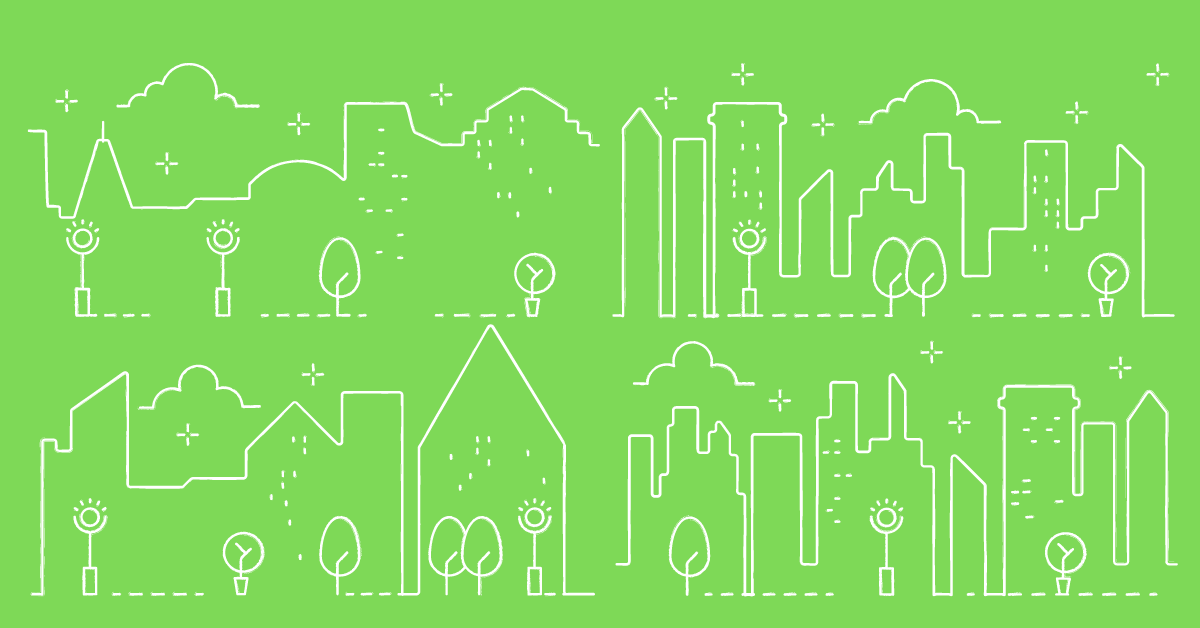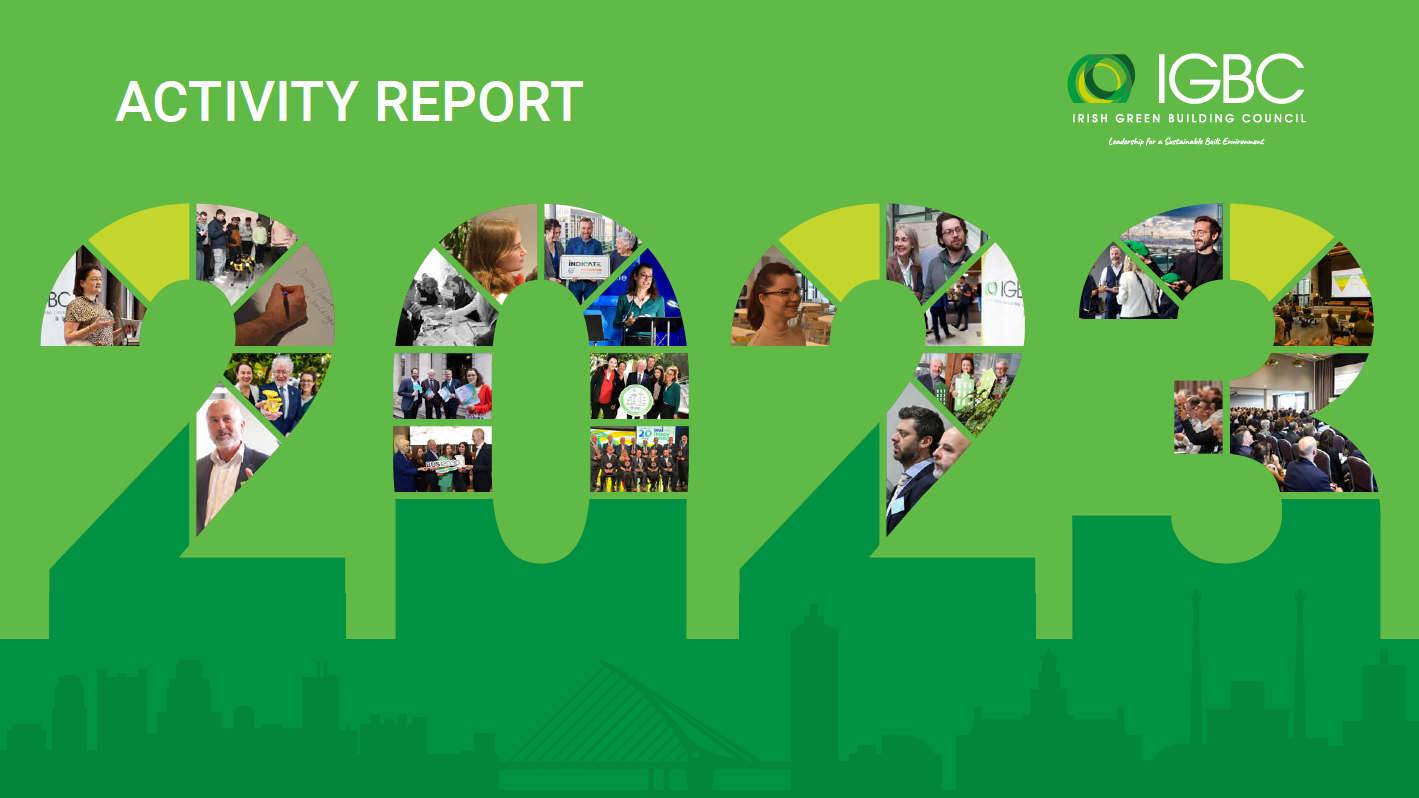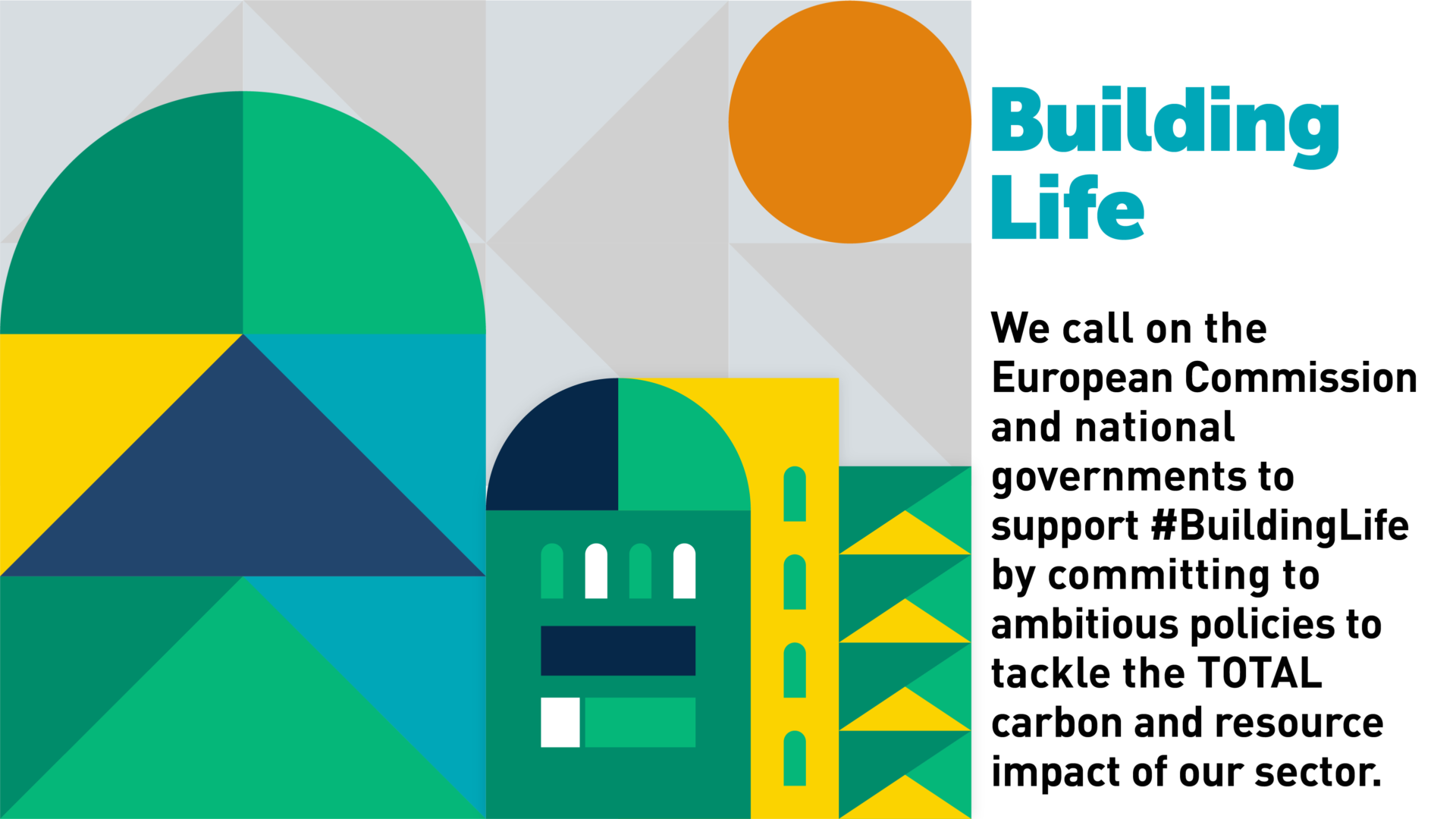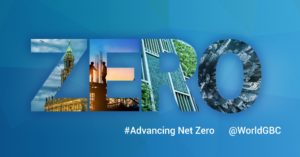What is Green Building and why does it matter?
For today’s Europe, Green Building represents one of the most significant and exciting opportunities for sustainable growth on both a national and a global scale. The design of our built environment impacts us all, as well as our economies and the natural environment, and Green Building Councils are driving its transformation towards sustainability.

Green Buildings: 12 Points to Consider
While many associate sustainable buildings with energy efficiency, there’s much more you can do to make a building greener. So, what exactly is a green building? Here we have listed 12 of the key factors to consider in a truly sustainable home or building
Healthy and Clean Air Inside
A green building prioritises good indoor air quality. You should incorporate proper ventilation systems to prevent the build-up of pollutants, dampness, and mould. This is particularly crucial in Ireland, where 1 in 13 people have asthma.[1] The significance of ventilation grows in tandem with the efficiency of your building. While overlooking ventilation might be permissible in a leaky dwelling, it becomes crucial for airtight buildings.
Good Building Energy Rating (BER)
A green building focuses on energy efficiency, as reflected in its BER rating. BER calculates energy usage for heating, hot water, ventilation, and water consumption. A higher BER rating signifies lower energy consumption, reduced carbon emissions, and lower utility bills. But ultimately, investing in an energy-efficient building also means a more comfortable environment.
Brightness
Considering that we spend more than 90% of our time indoors[2], it is important to have well-illuminated homes and buildings. A green building should maximise exposure to natural daylight, which not only improves mood and mental well-being but also helps regulate sleep patterns.
Lower Embodied Carbon
Green buildings consider the environmental impact of building materials. Embodied carbon refers to the carbon emissions associated with the extraction, transportation, manufacture, and installation of these materials. Biobased products, such as timber, have typically a lower carbon footprint compared to other building materials. You should check they have FSC/PEFC certifications to ensure they are sourced from sustainable forestry. But using biobased is not the only option. You can check the embodied carbon of materials you are using through the construction materials pyramid or Environmental Product Declarations (EPD). EPDs provide information on the environmental impacts of products including greenhouse gas emissions.
Remember, the greenest building is the one that already exists. For example, according to recent research[3], residential retrofit produces a quarter of the embodied carbon emission of a new building.
You can read our recommendation to decarbonise Ireland’s Built Environment here and our Handbook for planners.
Sustainable Location
A green building is ideally situated within a network of offices, schools, shops, public transportation, and amenities. Ireland’s highest and fastest growing source of carbon emissions is transportation [4] and a strategic location promotes sustainable transport options such as walking, cycling, or public transport. By reducing reliance on cars, your green buildings can enhance the quality of life and contribute to a healthier and more sustainable community.
Acoustic Comfort – Reduced Noise Intrusion
A peaceful indoor environment enhances a sense of security, privacy, and overall comfort, leading to improved physical and mental health. A green building should hence include sound insulation and sound tests should be performed.
Water Saving
Green buildings and homes prioritise safe and efficient water usage. Water-saving devices should be installed to reduce water consumption. These devices provide a high coverage sensation while delivering less water per minute, resulting in significant water and energy savings. Water-using products featuring the Unified Water Label, disclose their energy usage via a user-friendly energy efficiency chart like the one you find on electrical products and appliances. For more information, you can join our Water Use and Energy Efficiency 101 training.
Reduced Waste & Circularity
Green buildings actively promote waste reduction, recovery, reuse, and recycling during and after construction. By implementing sustainable waste management practices, your green building can contribute to minimising significant waste production. The construction industry is the largest waste stream generated in Ireland.[5] EPA released best practice guidelines that can help you manage mindfully your construction waste. You can read more about circularity in the built environment here.
Low Volatile Organic Compounds (VOCs)
VOCs can be emitted from building materials, furniture, and paints through a process called off-gassing. Green buildings prioritise the use of low VOC-emitting products, reducing the risk of respiratory illnesses, allergies, and long-term health issues. The products low in VOC are certified by EU Ecolabel and other quality labels.
Safe from Radon
Radon gas, a naturally occurring radioactive gas, can infiltrate buildings through tiny cracks or holes in floors and walls, posing a health risk. Radon is the second-largest cause of lung cancer in Ireland.[6] Radon is only an issue in parts of the country. You can check the radon risk map and take measures to prevent radon leaks (if needed), aligning with the recommendations of the EPA.
Biodiversity Friendly
Green buildings consider the impact on natural habitats and strive to improve ecological value. By encouraging the flourishing of native plants and animals, buildings can support healthy ecosystems. Several studies have also shown that access to nature can improve people’s health & wellbeing. All Ireland pollinators provide useful resources to take action for pollinators, while Bird Watch Ireland offers nestbox designs for birds and wildlife. You can also find useful insights in our biodiversity factsheet.
Lifetime Adaptable Buildings
A green building is designed to accommodate substantial changes overtime. As time goes by, buildings inevitably face changes in their surroundings and the needs of the people using them change too. If your building can easily adapt to these changes, it will be used more effectively and for a longer time. A simple plan with wide structural spans and generous floor-to-ceiling heights might be a good solution for future adaptation.
In Ireland, residential buildings awarded the Home Performance Index guarantee adherence to the previously mentioned 12 points and beyond. The Home Performance Index (HPI) is the national certification system for quality and sustainable residential development. It was developed by the Irish Green Building Council after extensive consultation with the industry. More than 20,000 homes are already registered to be certified. You can read more and check the technical manual at homeperformanceindex.ie.



